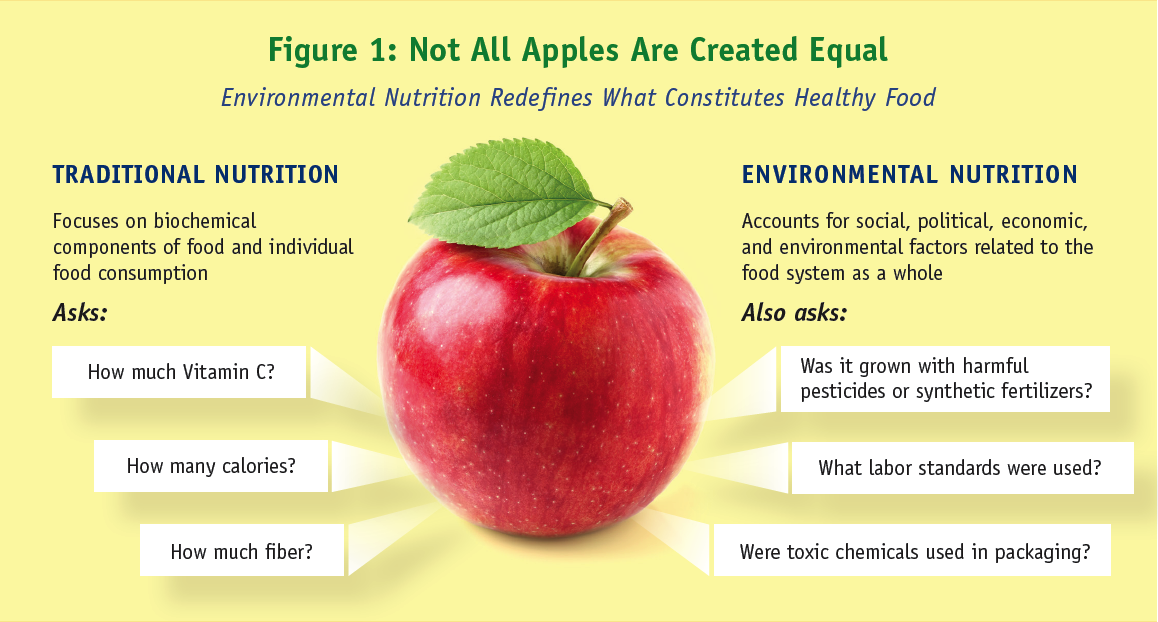Healthy food cannot be defined by nutritional quality alone. It is the end result of a food system that conserves and renews natural resources, advances social justice and animal welfare, builds community wealth, and fulfills the food and nutrition needs of all eaters now and into the future.
This paper presents scientific data supporting this environmental nutrition approach, which expands the definition of healthy food beyond measurable food components such as calories, vitamins, and fats, to include the public health impacts of social, economic, and environmental factors related to the entire food system.
Adopting this broader understanding of what is needed to make healthy food shifts our focus from personal responsibility for eating a healthy diet to our collective social responsibility for creating a healthy, sustainable food system. We examine two important nutrition issues, obesity and meat consumption, to illustrate why the production of food is equally as important to consider in conversations about nutrition as the consumption of food.
The health care sector has the opportunity to harness its expertise and purchasing power to put an environmental nutrition approach into action and to make food a fundamental part of prevention-based health care.
